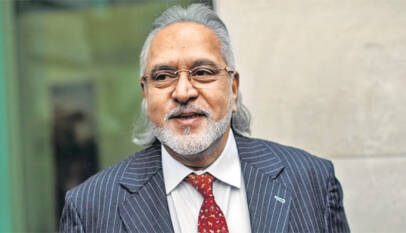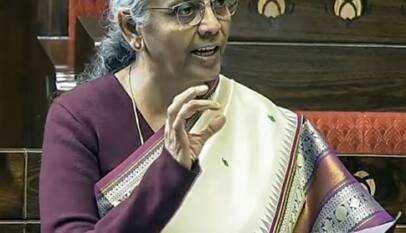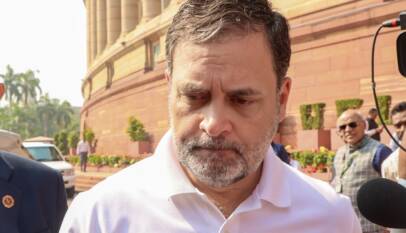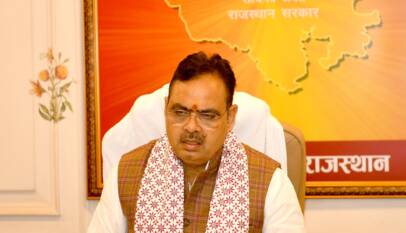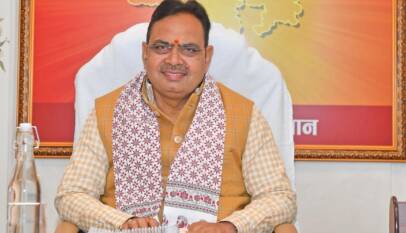Yogi govt prioritizes farmer prosperity with focus on Horticulture and vegetable farming.
Lucknow : The Yogi government of Uttar Pradesh has placed a significant emphasis on increasing farmers’ income through agricultural diversification. Horticulture and vegetable farming play the most crucial roles alongside traditional farming in this effort. Due to its nine agro-climatic zones, Uttar Pradesh has ample potential for this diversification.
In a recent meeting of the Rajya Mandi Parishad, Chief Minister Yogi Adityanath issued directives to establish tissue culture laboratories at the four agricultural and technological universities across Uttar Pradesh. These laboratories aim to ensure high-quality planting of horticultural crops, with funding provided by the Mandi Parishad. Additionally, the Chief Minister emphasized the need to establish a horticulture college in Raebareli.
Departmental Minister Dinesh Singh stated that land has already been identified for the horticulture college in the village of Padhera in Harcharanpur, Raebareli. The Agriculture Department has transferred this land to the Horticulture Department. Funds have also been released for the first phase of work. Along with degree courses, short-term training courses will also be offered.
It is noteworthy that due to the continuous efforts of the state government, fruit and vegetable farming is becoming a field of possibilities for the farmers here. This new initiative by the government will further enhance the potential of this region.
According to the 2023 Agroforestry Report, UP’s share in fruit and vegetable farming has increased from 7.2 per cent to 9.2 per cent over the past decade. Correspondingly, the Gross Value Output (GVO) from these has risen from Rs 20.6 thousand crore to Rs 38 thousand crore.
This growth is significantly attributed to the Yogi government’s efforts in promoting agricultural diversification and encouraging farming that meets market demands. Key contributions include producing quality plants in Centers of Excellence and Mini Centers of Excellence and providing them to farmers at minimal rates, promoting controlled farming by regulating temperature and humidity, and modernizing mandis.
It is well known that the cultivation and processing of fruits and vegetables is a field with vast potential. Recognizing these possibilities, the government has been continuously promoting their cultivation since its first term. About two years ago, after CM Yogi was elected for the second consecutive time, ambitious goals were set for the next five years to expand the area under cultivation, increase yield, and enhance processing. Work is being carried out accordingly.
According to the target, by 2027, the area under horticultural crops is to be increased from 11.6 per cent to 16 per cent, and food processing from 6 per cent to 20 per cent. For the processing units required to achieve this, there will be a substantial need for fruits and vegetables as raw materials.
In achieving the set targets for horticulture, the most important role is played by high-quality planting material (plants and seeds). To this end, the government will establish Centers of Excellence, Mini Centers of Excellence, or high-tech nurseries in every district within the specified timeframe. Work is already underway in this regard. The government intends to have such infrastructure in place in every district by 2027.
Due to the incentives received from the government and these very possibilities, in the past 7 years, the area under fruit and vegetable cultivation has increased by more than 101,000 hectares, and the yield has grown by over 0.7 per cent. To ensure that farmers receive high-quality planting material, Indo-Israel Centers of Excellence for fruits and vegetables have been established in Basti and Kannauj, respectively.
To promote protected cultivation of off-season, high-quality plants and vegetables, efforts are continuously being made to advance protected farming using Indo-Israel technology, which regulates moisture and temperature.
Vegetable Scientist, Dr. S.P. Singh said that in Uttar Pradesh, the most effective way to increase farmers’ income is through the cultivation of fruits, vegetables, and spices. With nine different agro-climatic zones, it is possible to grow all kinds of fruits, vegetables, and flowers in various regions. Small and marginal farmers will play a crucial role in this, as they make up about 90 per cent of the total farmer population. Typically, these farmers engage in the traditional cultivation of crops like rice, wheat, and sugarcane. To increase their income as per the government’s intent, they need to be encouraged to cultivate fruits, vegetables, and flowers.
Bangladesh Votes for Change as BNP Surges Ahead in Post-Hasina Election
Dhaka, Feb 2026 :Vote counting began in Bangladesh late Thursday after polling concluded f…


